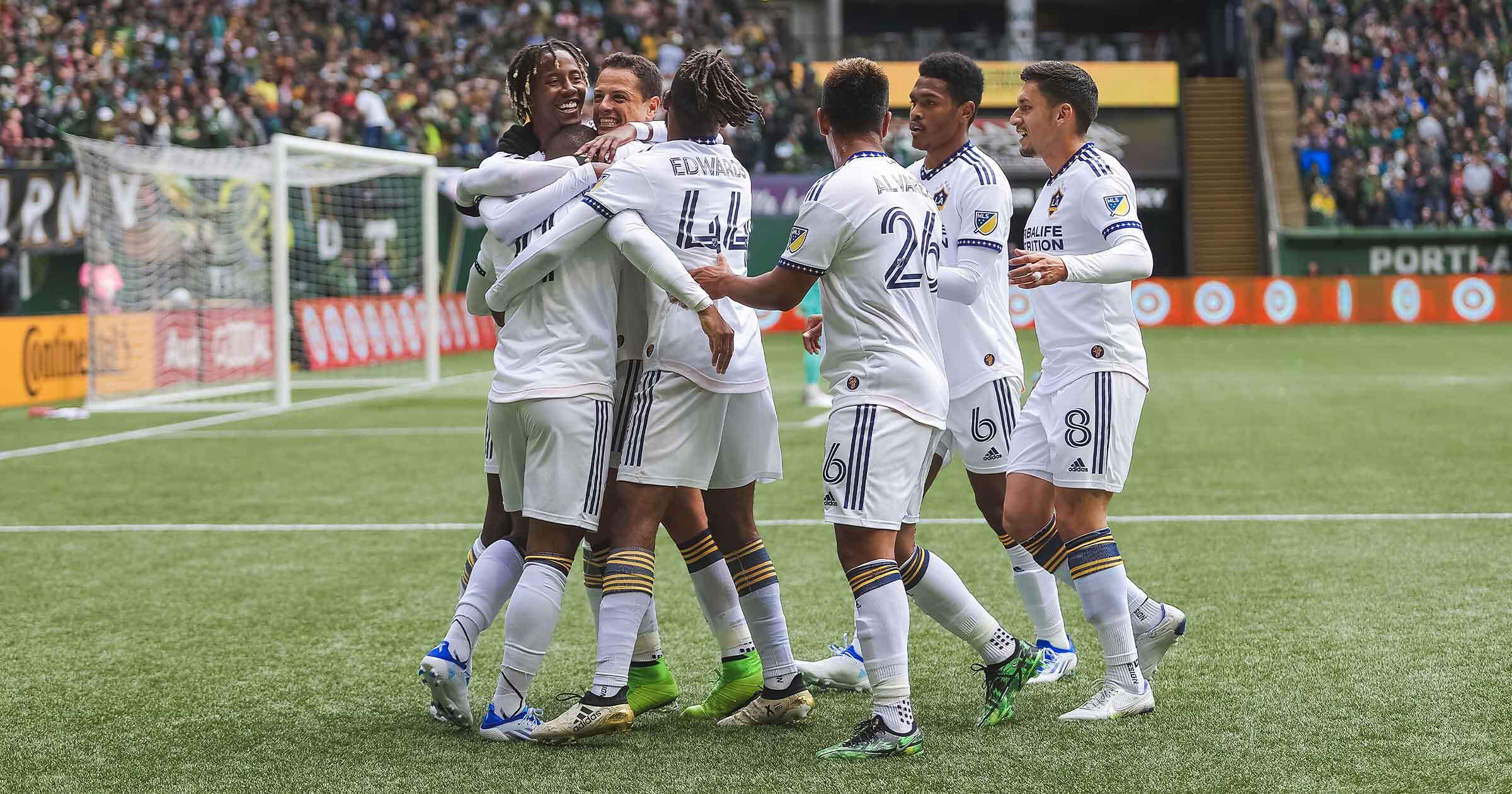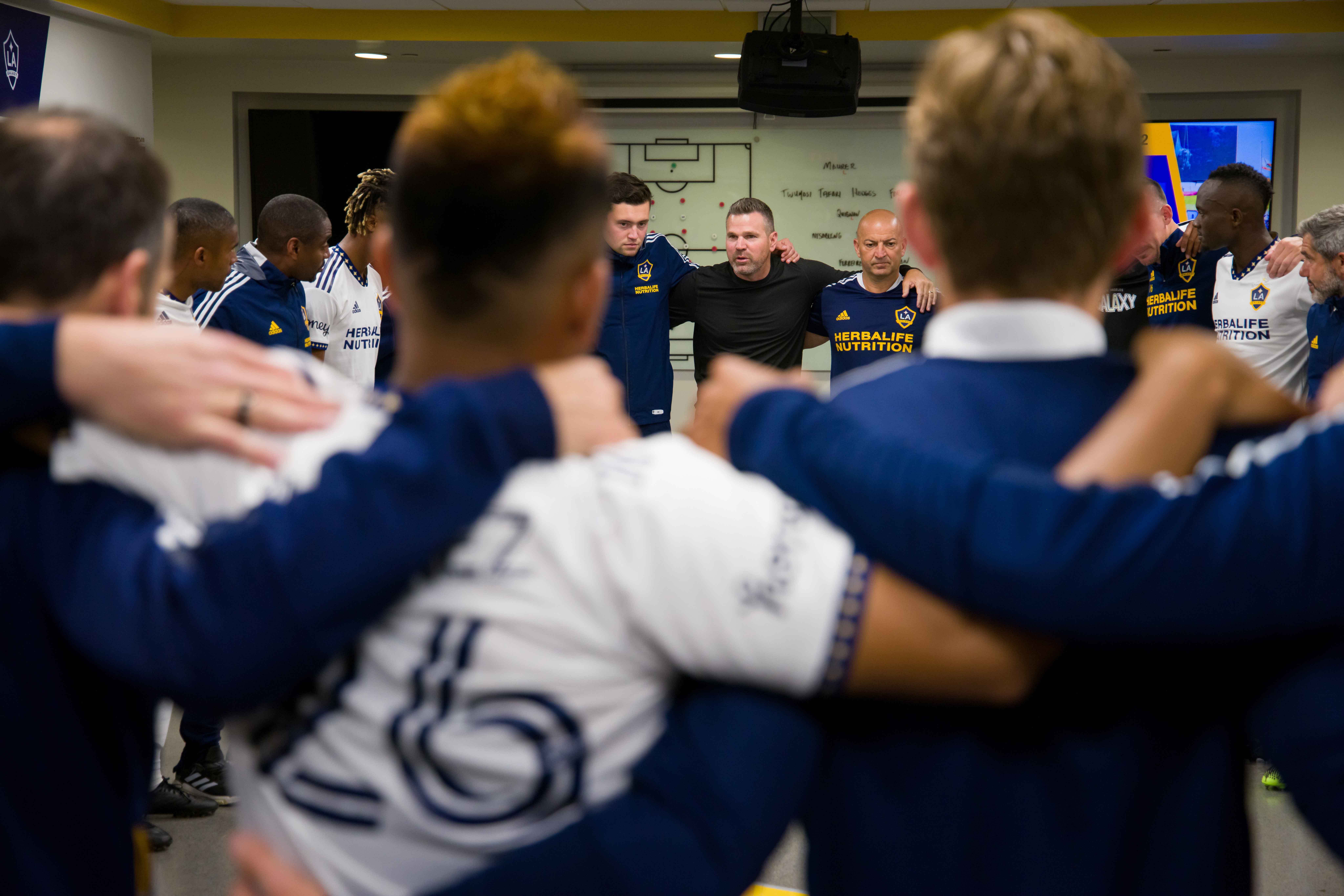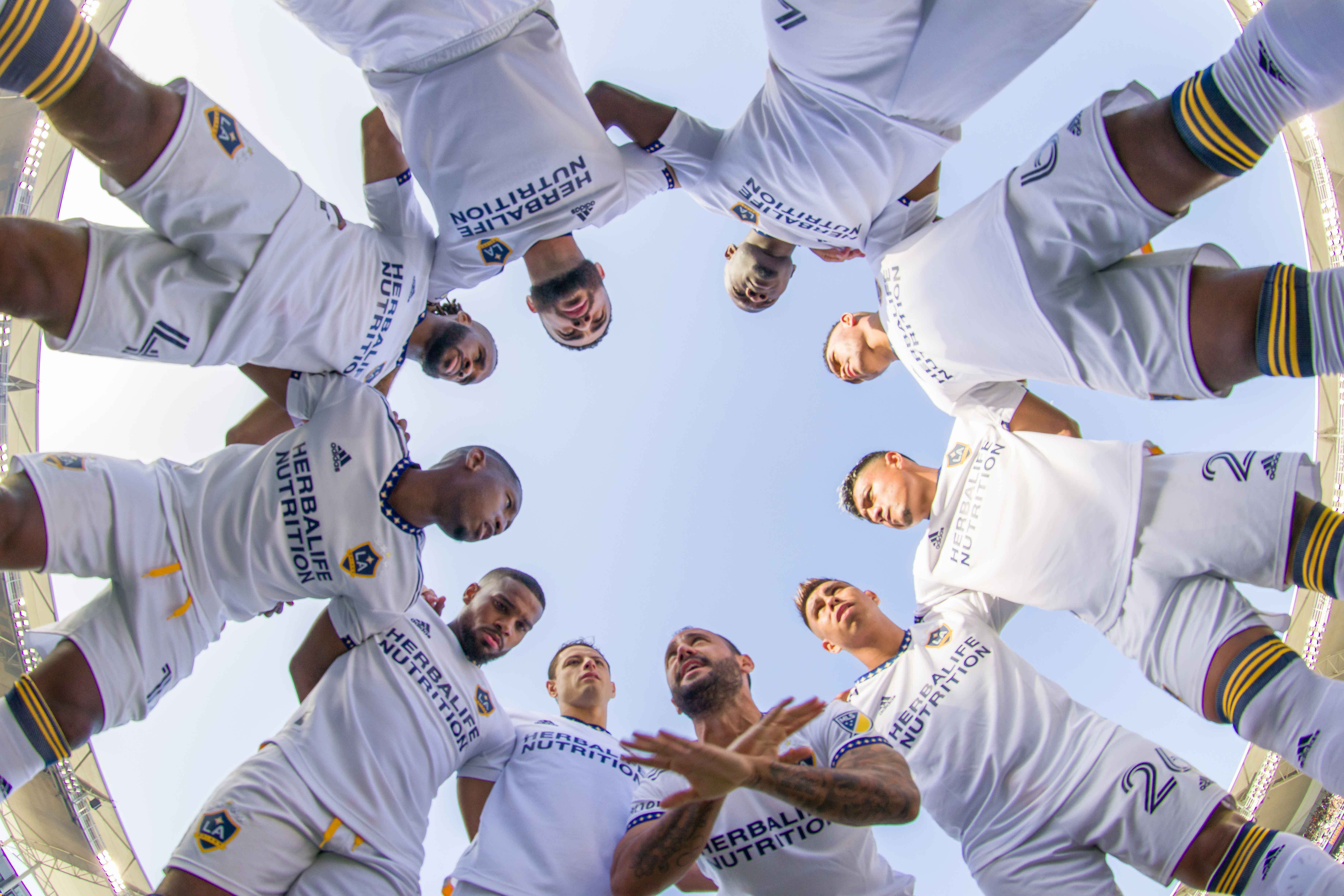How LA Galaxy Use Video to Develop Their Next Set of Stars
Development of academy players at MLS clubs is crucial due to a league-wide salary cap, which allows concessions for homegrown talent. Sam Green – Assistant Coach and Director of Video Analysis at LA Galaxy – arrived at the club with a plan to grow the next group of Galaxy Stars. In his role, Green oversees both First Team and Academy video analysis at the club.
Originally from the United Kingdom, Green has gone from an internship at fourth-tier English club Rochdale to, a decade later, being involved with the most decorated MLS club. Between then and now came roles with Chelsea Under-18s and at West Brom’s youth academy.
Making performance feedback effective, efficient and streamlined is vital when time is limited. This is one of the key reasons why the Galaxy quickly began to expand the club’s use of Hudl products when Green joined after a successful spell with Toronto FC, in 2021.
“When I arrived at Galaxy, we had six or seven Hudl Sportscode licenses – and we've progressed to 19 licenses this year,” says Green. “With the first team and second team, we immediately expanded to Hudl online across all coaches. This year, we've progressed to Sportscode licenses for all academy coaches. Now they have the option to do it all remotely: sharing playlists, creating specific things for players to view away from the facility. Our coaching staff are fully on board with it.”

How Video Analysis Directs Player Development
The salary cap heightens the importance of academy success. Bringing through your own first-team stars – such as LA Galaxy’s Efrain Alvarez and Julian Araujo – are like gold dust. “It’s a unique challenge, not necessarily a bad thing,” says Green. “Because it’s a competitive advantage as to how you structure the roster and the planning that goes into it.”
Key to the development of players at academy level is the customizable video and data analysis tool Hudl Sportscode, which Green has been using throughout his coaching journey.
“Video within Hudl Sportscode is crucial to how we operate and is part of our daily process with the first team , second team and academy teams,” said Green.
“Training is processed through Hudl Sportscode daily and reviewed by coaches within the Hudl Sportscode. It is shared directly onto the online Hudl platform for players to review, alongside our own games and any other relevant content we wish to share, the same now applies to every team at the club.
With the first team, we maintain a training log by creating and updating a Database in Hudl Sportscode, which allows us to quickly refer back to specific sessions throughout the season. Databasing is also used to maintain style of play videos that are then distributed throughout the academy as a principle teaching tool.”
"With the first team, we maintain a training log by creating and updating a Database in Hudl Sportscode, which allows us to quickly refer back to specific sessions throughout the season"

"You start building a bank of clips of certain examples or scenarios – so if it's a central midfielder: this is what Kevin De Bruyne does at the elite, international level. This is what we want our central midfielders to do if they match that profile".

For the LA Galaxy first team, overseen by Galaxy Head Coach Greg Vanney, insight on systems and game plans is as important as player feedback. “We use databasing regularly within the first team. It allows us to maintain a best practice library and retrieve specific instances when called upon. This then impacts our training and preparation for opponents and is something that is built upon over time”.
“Also at first-team level, the coaches are very skilled on Sportscode. They create their own organizers, they share clips if they need to – and we can do this as a unit or in an individual meeting. So we might just take the back four, take two midfielders, or work with players one-on-one. It’s all focused on getting better in order to win at the weekend. That's the goal.”
Not that the use of technology as an aid stops after kick-off. Green explains that Hudl Replay – which allows for real-time analysis, data and instant replay – is “utilized every matchday”, even when they’re away from Los Angeles. “We have a portable solution for away games, so we’re able to operate in the same capacity that we do at home. That's really important for us, because we can then impact performance at half-time.”
Expanding on the role it plays, Green explains: “On a matchday, it's all down to what we see. We have a coach working on the bench with an iPad, and myself – from an elevated position – filming and coding on Sportscode. And we're in communication the whole game.
“Then between us, we pick something that we will show the head coach at half-time, and then we may share that with the team. That's the time where we can instantly impact performance. To hopefully make those adjustments and win a game in the second half.”
Green only joined LA Galaxy in 2021 but the increased use of Hudl products within the club has gone seamlessly so far. As much as coaches have appreciated it, the club’s Assistant Coach and Director of Video Analysis Green – with his strong background in youth coaching – sees the real benefit as players getting as much from it as they want.
“Hudl online is a great tool for players to carry out their own analysis,” he says. “It’s still new for a lot of academy players – but it shows them the best way that they can develop.”
Learn more about how the Hudl Pro Suite links together a fully-integrated suite of analysis solutions. Also check out our professional MLS case studies with Real Salt Lake, Houston Dynamo and Colorado Rapids.
